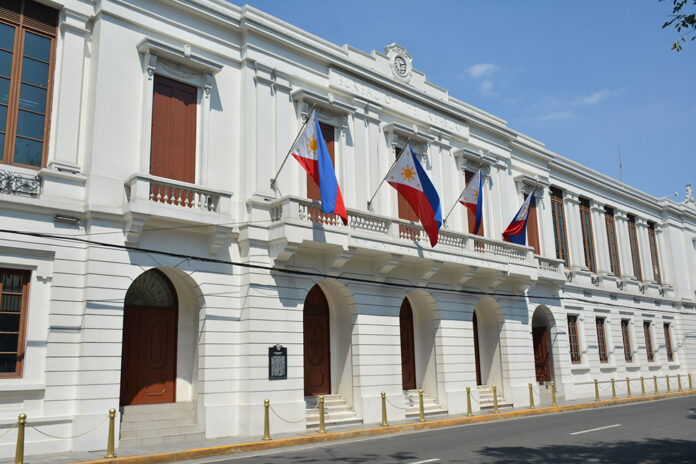THE national government’s fiscal balance in January swung to a P14.1-billion budget deficit, a turnaround from the P23-billion surplus posted in the same month last year.
The Bureau of the Treasury (BTr) said on Wednesday the shortfall resulted from the “modest increase” of 1.18 percent in government spending despite the 11.51-percent drop in revenue collection.
Revenue collection in January dropped to P260.7 billion from last year’s P294.6 billion. On the other hand, government expenditures for the same month amounted to P274.8 billion from last year’s P271.6 billion.
Broken down, tax collection made up 89 percent or P232.7 billion of the total, lower by 8.3 percent from P253.8 billion in January 2020.
The Bureau of Internal Revenue saw its collections declining by 6.54 percent to P182.2 billion from P194.9 billion a year ago. Meanwhile, Bureau of Customs revenues for the same month fell by 15.41 percent year-on-year to P47.3 billion from P55.9 billion in 2020.
Non-tax revenues also plunged by 31.43 percent to P28 billion compared to P40.9 billion a year ago.
Of the total non-tax revenues collected for the period, BTr contributed P18.7 billion, a 34.27-percent drop from last year’s P28.4 billion.
The BTr said the decrease was attributed to the high base effect of dividend remittances from government-owned and -controlled corporations (GOCCs), particularly the Bangko Sentral ng Pilipinas, which remitted P17.3 billion last year, and the 58.69-percent drop in the national government’s share from the income of the Philippine Amusement and Gaming Corporation.
On government’s expenditure performance for the month, BTr said the uptick was moderated by lower interest payments, which declined by 23.43 percent or P14.4 billion year-on-year to P47 billion, mainly due to the redemption of Global Bonds in 2020 and the settlement of premiums on reissued Treasury Bonds.
Net of interest payments, however, spending grew by 8.37 percent year-on-year to P227.8 billion from P210.2 billion recorded a year ago, owing largely to higher allocations for local government units and disbursements by line agencies.
Despite the slight year-on-year increase in government spending for January, economists said this showed the “slow” pace of government spending which could drag the country’s economic recovery.
Union Bank of the Philippines Chief Economist Ruben Carlo Asuncion told the BusinessMirror they were expecting a much higher budget deficit for January on the back of increased spending despite the drop of revenue collections amid the Covid-19 pandemic.
“I was hoping that disbursements would have been indeed ramped up. Unfortunately, it was really slow, in my sense. We were actually expecting a deficit of P129.8 billion for January, but a measly portion only registered for the month. This means that disbursements for the quarter would now have to catch up to help in the recovery,” Asuncion said in a message.
He also now sees “more pressure” for the government to ramp up its spending to prevent the economy from further lagging behind given the recent spike in infections and the question of whether to lock down further due to the rise of cases.
Rizal Commercial Banking Corp. (RCBC) Chief Economist Michael Ricafort also agreed with Asuncion, saying government spending for the month was “unusually slow compared to recent months in view of various Covid-19 programs and also compared to growth rates before Covid-19.”
Like Asuncion, Ricafort also said the government needs to step up, especially on infrastructure, given the timely approval of the 2021 national budget and the extension of validity of unused funds from the 2020 national budget and the Bayanihan 2.
“Increased government spending is one of the pillars of economic recovery program to pump prime the economy, which needs all the support measures that it could get,” he said.
But Ricafort also sees the recent spike in Covid-19 cases and the delay in the arrival and rollout of Covid-19 vaccines slowing down economic recovery prospects because these will temper any additional measures to reopen the economy.
Nonetheless, he said he expects government spending, especially on infrastructure, picking up in the coming months in preparation for the 2022 elections.
Last year, the national government’s budget deficit soared to a record-high of P1.37 trillion, more than double the 2019 shortfall of P660.2 billion.
As a percentage of GDP, the government’s full-year 2020 budget deficit also reached an unprecedented 7.63 percent, even eclipsing 5.02 percent in 2002.
For this year, the government even expects a much wider budget deficit at P1.78 trillion or 8.9 percent of GDP.
Image credits: Walter Eric Sy | Dreamstime.com
Read full article on BusinessMirror

